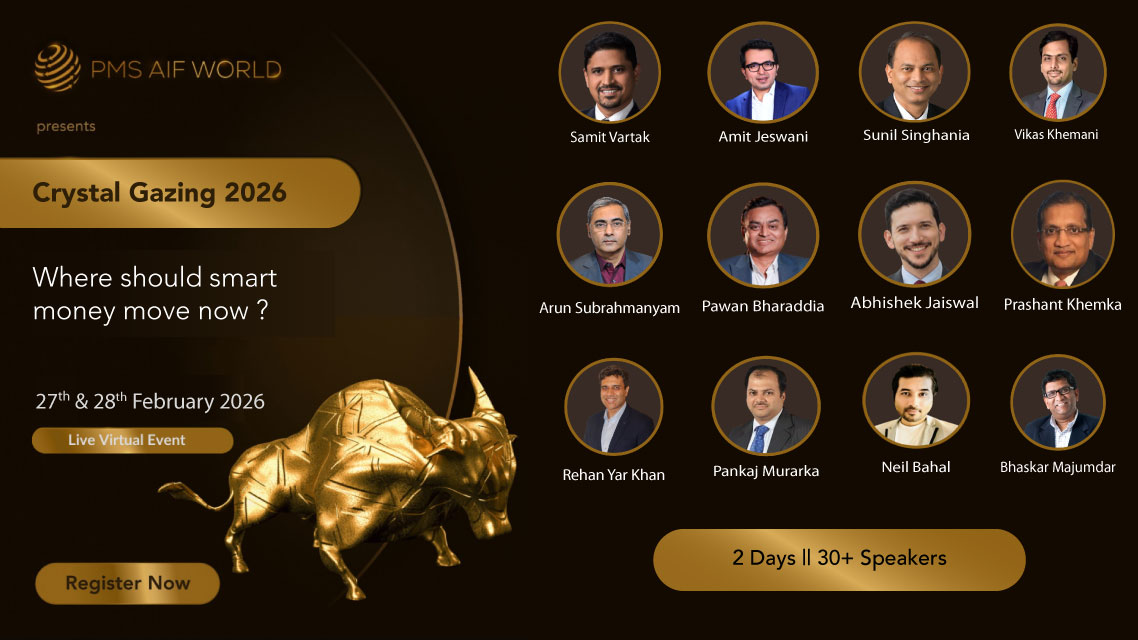
Best AIFs in India for 2025: High-Performance Funds Across Categories I, II & III
As India’s capital markets evolve, Alternative Investment Funds (AIFs) have emerged as a powerful asset class for sophisticated investors. Regulated by SEBI under the AIF Regulations, 2012, these funds provide curated access to private equity, venture capital, structured credit, and long-short strategies – all within a professionally managed framework.
At PMS AIF WORLD, we track and evaluate over 500+ SEBI-registered AIFs to help you identify the Best AIFs in India across Categories I, II, and III.
Category I AIFs – High Growth Venture & Early-Stage Funds
Category I AIFs focus on investing in early-stage ventures, start-ups, social enterprises, SMEs, and infrastructure – sectors recognized by the government as socially or economically desirable. These funds carry higher risk but offer substantial upside potential for long-term investors.
Negen Angel Fund
Backing profitable consumer startups with skin in the game.
Pipe Serica Angel Fund
Investing in 20–25 early-stage startups using AI-led screening for high success potential.
Finvolve Growth Opportunities Fund
Backs 60+ early-stage startups with mentor-driven support from India Accelerator.
India Discovery Fund – II
Growth capital for tech-driven, asset-light startups shaping India’s future.
Category II AIFs – Private Equity & Private Credit Strategies
Category II AIFs are the most diverse and flexible vehicles, investing in both growth equity (early to pre-IPO stages) and structured debt (venture debt, performing credit, distressed credit). They are considered among the best AIFs in India for investors seeking long-term alpha through private market exposure.
Category III AIFs – Public Market Strategies (Long Only & Long-Short)
Category III AIFs invest in listed equities using either long-only or long-short strategies. These funds are popular for their ability to generate absolute returns, use leverage, and actively manage risk across market cycles.
Chat with our Certified Investment Counsellor
Why AIFs Are the Best Investment Choice for HNIs
Diversified across public & private markets
Regulated by SEBI with strong governance
₹1 crore minimum investment ensures qualified participation
Combines the structure of a mutual fund with the customization of PMS
What is GIFT City and what are some Investment options in GIFT City?
FAQs
What is an AIF?
An AIF or an Alternate Investment Fund means any fund established or incorporated in India which is a privately pooled investment vehicle which collects funds from sophisticated investors, whether Indian or foreign, for investing it in accordance with a defined investment policy for the benefit of its investors.
In AIFs, one does not need to open a demat account this is a pooled vehicle; hence all clients investing at the same closure have similar returns experience. The tax implications are different for the different categories of AIF.
What is the minimum investment amount for an AIF?
Rs 1 Crore.
Who should invest in an AIF?
These are specifically made for high-net-worth (HNI) or UHNIs investors with customized investment needs.
How are AIFs unique?
AIFs combines the operational ease of a mutual fund and the flexibility of a PMS making it a perfect blend geared for generating optimum performance for a stipulated investment objective. To enhance risk-adjusted performance, these products can use complex strategies like unlisted equity investments, long-short hedging style of investments etc.
How many categories of AIFs are there?
There are three categories of AIF: Category I (CAT-I), Category II (CAT-II), and Category III (CAT-III),
What is CAT-I AIF?
AIFs which invest in the unlisted & private space of start-up or early-stage of ventures and popularly known as venture capital equity or debt funds. Besides the world of start-ups and disrupting ideas, this category also covers social ventures or SMEs or infrastructure projects or other sectors or areas which the government or regulators consider as socially or economically desirable and shall include venture capital debt funds, SME Funds, social venture funds, infrastructure debt or equity funds and such other Alternative Investment Funds as may be specified.
What is CAT-II AIF?
AIFs which invest in the unlisted or private space of mid stage or late stage of a business either in form of debt or equity. These funds, when investing in the mid-stage of a business are also called private equity funds or PE funds. The same CAT II funds, when investing in late stage businesses are called Pre-IPO funds. Both these categories of funds are very popular and many investment companies have AIFs running in this category, like Edelweiss, IIFL, Kotak, Axis, Avendus, and so on.
While the above described are equity funds, mid stage investing can also be in the form of debt financing as well and then these funds are called Real Estate funds, Credit Opportunities Funds, Distressed Asset Funds [as lending is in such funds is against real estate projects or business cash flows or business assets as a collateral for the lending], and so on. Again, this category is also very popular with companies like Sundaram, HDFC, Birla, Axis, Kotak, Edelweiss, IIFL, and so on.
What is CAT-III AIF?
AIFs which invest primarily in the listed space of equities across large, mid, small cap businesses and are allowed to employ diverse or complex trading strategies and may employ leverage through investment in listed or unlisted derivatives. This is one of the most popular and largest categories from the sellers and buyers’ perspectives as this category has maximum number of funds, as well as maximum number of investors.
Category III AIFs are further divided into Long Only and Long Short Funds. Many well-known companies with long only AIFs are Motilal Oswal, ASK, Alchemy, IIFL, Abakkus, Sage One, and so on. Some companies with Long short AIF products are Tata, Kotak, Avendus, IIFL, Edelweiss, ITI, and so on.
What are the fees / profit sharing structure in an AIF?
AIFs follow variety of share classes and so offer variety of fee structures. Generally, profit sharing is 12% to 15% above 8% to 10% huddle.
Does an investor need to open a demat account?
In AIFs, one does not need to open a demat account this is a pooled vehicle; hence all clients investing at the same closure have similar returns experience. The tax implications are different for the different categories of AIF.
Till what % is the fees negotiable?
In AIFs, there is a pooled structure, and hence no negotiation on management fees is possible. But, set up fees can be waived off completely.
What is an Angel Fund & how can AIFs invest in it?
Angel Fund is a sub-category of Venture Capital Fund under Category I- Alternative Investment Fund that raises funds from angel investors and invests in accordance with the provisions of Chapter III-A of AIF Regulations.
In case of an angel fund, it shall only raise funds by way of issue of units to angel investors.
Who is the “Sponsor” in an AIF?
Sponsor is any person(s) who set up the AIF and includes promoter in case of a company and designated partner in case of a limited liability partnership.
What is the maximum limit prescribed for Overseas Investment by Alternative Investment Funds?
Overseas investments by AIFs investments shall not exceed 25% of the investible funds of the scheme of the AIF subject to overall limit of USD 500 million (combined limit for AIFs and Venture Capital Funds registered under the SEBI (Venture Capital Funds) Regulations, 1996).
Click here to check the whole list of FAQs – AIF FAQs
Wish to make INFORMED INVESTMENTS for Long Term WEALTH CREATION


